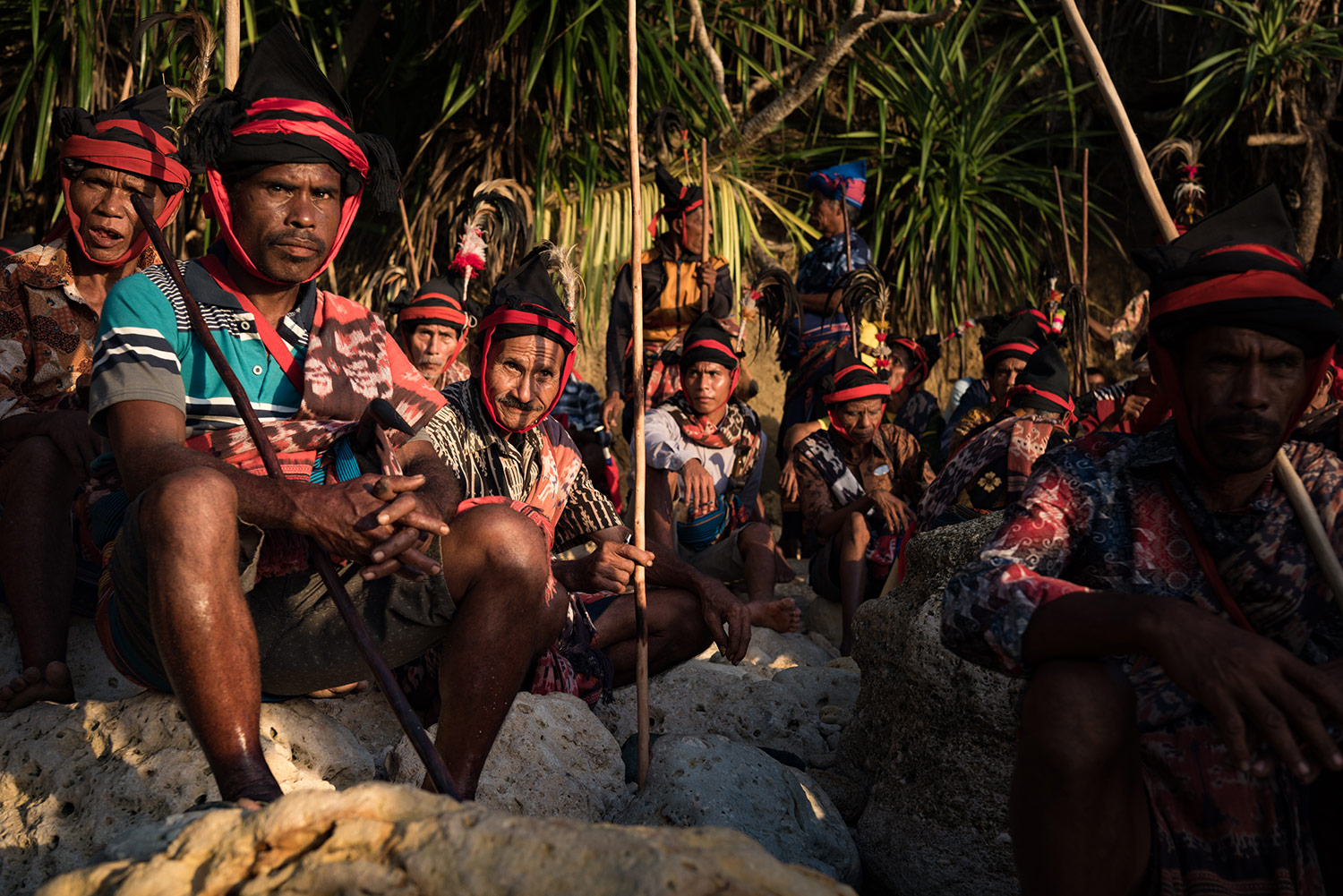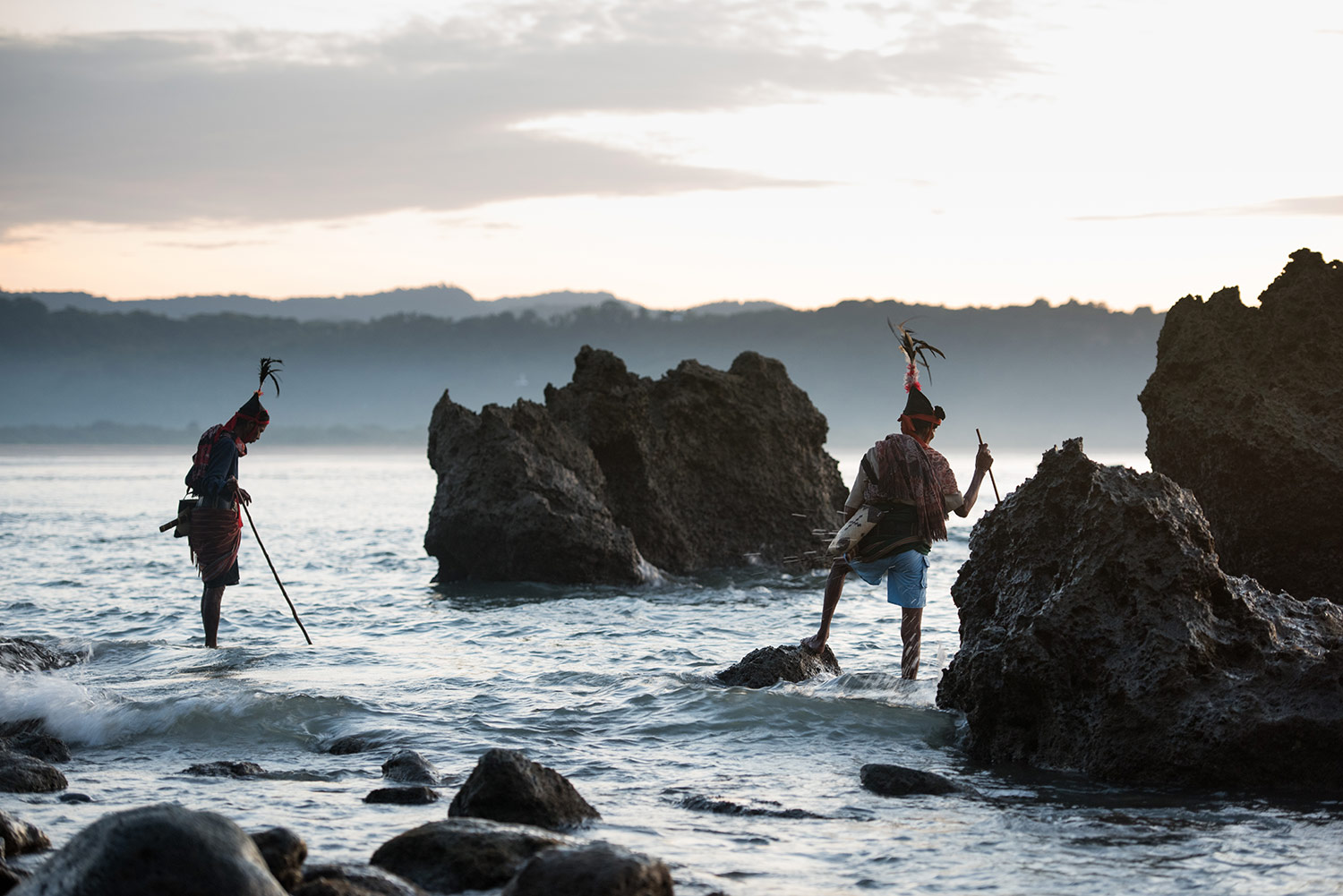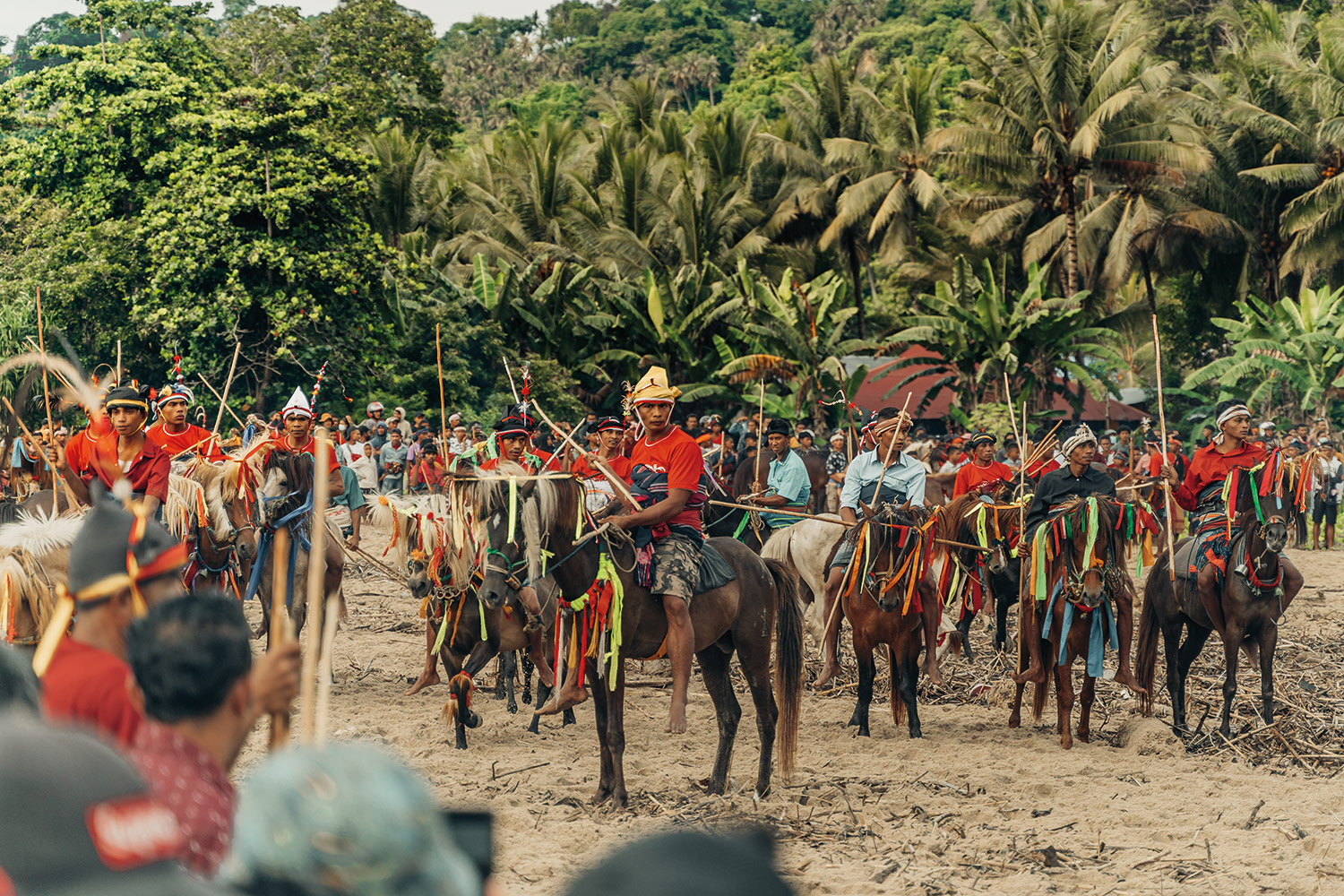
In Your Eyes: Our #nihigram Contest
Feb 01, 2019
Read moreEvery year, the island of Sumba comes alive with one of Indonesia’s most spectacular and sacred traditions—Pasola. More than just a ritual, Pasola is a test of bravery, skill, and deep spiritual faith, held in four key regions: Kodi, Lamboya, Gaura, and Wanukaka.
As warriors gallop across open fields, hurling wooden spears at one another, Pasola is more than just a battle—it is a tribute to the ancestors, a ritual for prosperity, and a unique cultural legacy that has stood the test of time.

The history of Pasola is deeply tied to Marapu beliefs (Sumba’s ancestral religion) and local folklore. One widely told legend speaks of a noblewoman who fell in love with a man from a rival village. Her forbidden love led to a violent war, which over time evolved into a ritualized battle, symbolizing the importance of honor, reconciliation, and harmony.
What began as an actual war is now a ceremonial battle meant to bring balance between the spiritual and physical worlds, ensuring a prosperous harvest and protection from misfortune.
Unlike modern festivals with fixed dates, Pasola’s timing is determined by the arrival of Nyale (sacred sea worms), which signals the start of the planting season. The Rato (Marapu priests) observe the ocean and the lunar calendar, waiting for the moment when Nyale washes ashore. Once the Nyale appear, the priests set the Pasola dates, which usually fall between February and March.
Since the exact dates change each year, locals and visitors alike must wait for the official announcement from the Rato before preparing for the event.
Pasola is not just about the battle—each region has its own set of rituals that must be performed to cleanse the land and ensure the ancestors’ blessings.
In Lamboya, before Pasola begins, young men participate in free boxing matches to test their courage and strength, proving they are ready to take part in the main event.
Before Pasola in Wanukaka, a sacred cleansing month (Wula Nyale) is observed, during which strict taboos must be followed: No wearing red attire, as it is believed to attract bad luck. No parking boats on the beach, to respect the Nyale. No constructing new buildings, to maintain spiritual balance. No bathing horses in the river, as the water is considered sacred.
The rituals include:
Pajura (Traditional Boxing): A fierce bare-knuckle fight among young men.
Palaingu Jara (Horse Training): Riders train their horses in preparation for battle.
Pasola: The final event, held on the beach and Kamara Dena field.
Pasola in Gaura is unique because it lasts for two days. The first day is reserved for young boys, allowing them to learn and practice Pasola from an early age. On the second day, the experienced warriors will battle.
This two-day tradition ensures that Pasola remains alive for future generations, passing down the art of horsemanship and spear-throwing from father to son.
The arrival of Nyale is a crucial sign that Pasola is near. These colorful sea worms, which emerge once a year, are believed to be messengers from the ancestors.

In Wanukaka, the Rato analyze the size and number of Nyale to predict the success of the harvest, while in Kodi and Lamboya, the presence of Nyale is believed to ward off natural disasters. In Gaura, Nyale is collected and enjoyed as a delicacy, as its consumption is thought to bring good fortune.
Aplentiful and healthy harvest of Nyale signifies a prosperous year ahead, whereas a scarcity serves as a warning of potential hardships to come.
When Pasola begins, warriors on horseback charge at each other, hurling wooden spears with precision. In the past, sharpened spears were used, but today, blunted spears are used to minimize injuries—though bloodshed is still considered a good omen.
According to Marapu beliefs, the more blood that spills, the more fertile the land will be. For the warriors, Pasola is a chance to prove their courage and honor their ancestors.
Horses are more than just animals in Sumba—they are symbols of status, bravery, and freedom. In Pasola, only the strongest and fastest horses are chosen, and riders must be skilled at riding without saddles, dodging attacks, and throwing spears while galloping at full speed.
For the Marapu followers, horses are believed to carry the spirits of warriors, making them sacred beings.
Although Pasola remains a deeply spiritual event, it has also become a major cultural attraction. Visitors from around the world come to witness the thrill of battle, stunning horsemanship, and rich Sumbanese traditions.
However, tourists are advised to respect the sacred nature of the event, follow local customs, and be mindful of taboos.

Fun Fact
NIHI Staff Become “Rivals” During Pasola!
At NIHI Sumba, our staff come from different regions of Sumba, making Pasola a time of friendly rivalry. During the event, best friends who usually work side by side temporarily become “opponents”, each supporting their home village. But once Pasola ends, they return to NIHI as family, united by the spirit of Sumba.
Pasola is more than just a sport or a ritual—it is a bridge between past and present, a way to honor tradition, courage, and community unity. It reminds us that, even in today’s world, ancient beliefs and warrior traditions can still thrive. If you ever find yourself in Sumba between February and March, don’t miss the chance to witness Pasola in all its raw, breathtaking glory—a battle of skill, faith, and tradition that has stood the test of time.